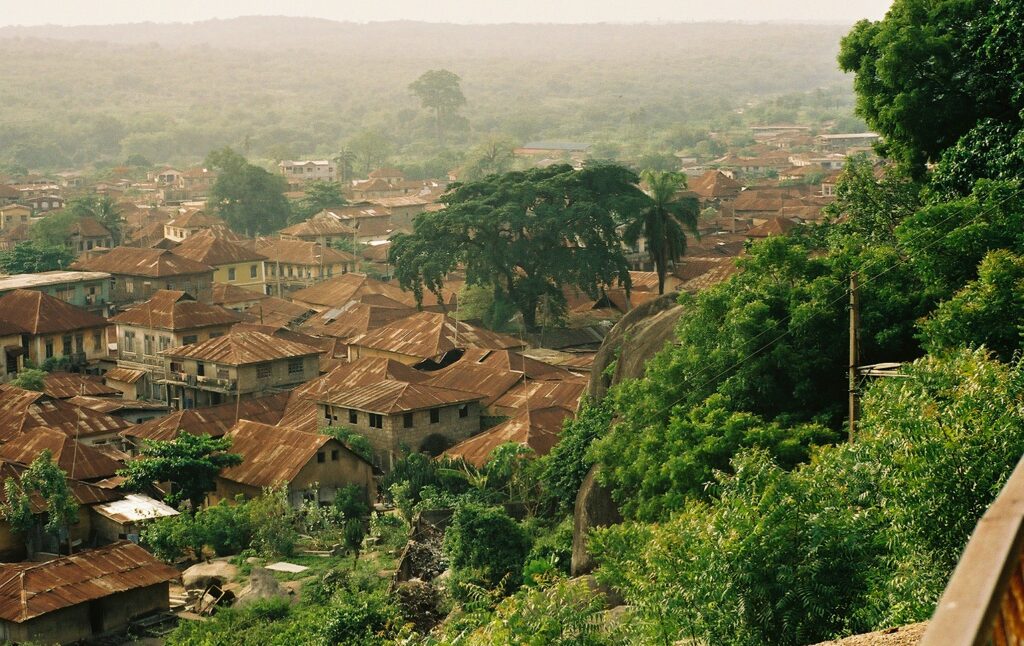

From there, we visited the remains of Igboore primary school which was established by the Church Missionary Society in 1896, as well as Owa’s Palace, the king’s residence. We also saw shrines which had different orisas (idols), the unreadable signs which is a mysterious and cryptic sign written on a rock. Beside the rock, there were cactuses which have been there for hundreds of years. As far as I recall, the curator gave us permission to sign our names on one of the rocks.

We also viewed the Agboogun footprints. There is an interesting legend associated with them: if an average person steps into the footprints, they will automatically enlarge or shrink to fit the person’s foot size. However, witches and wizards are revealed because the footprint size does not adjust to their feet. I remember all of us classmates stepping into the footprints, and it really worked.
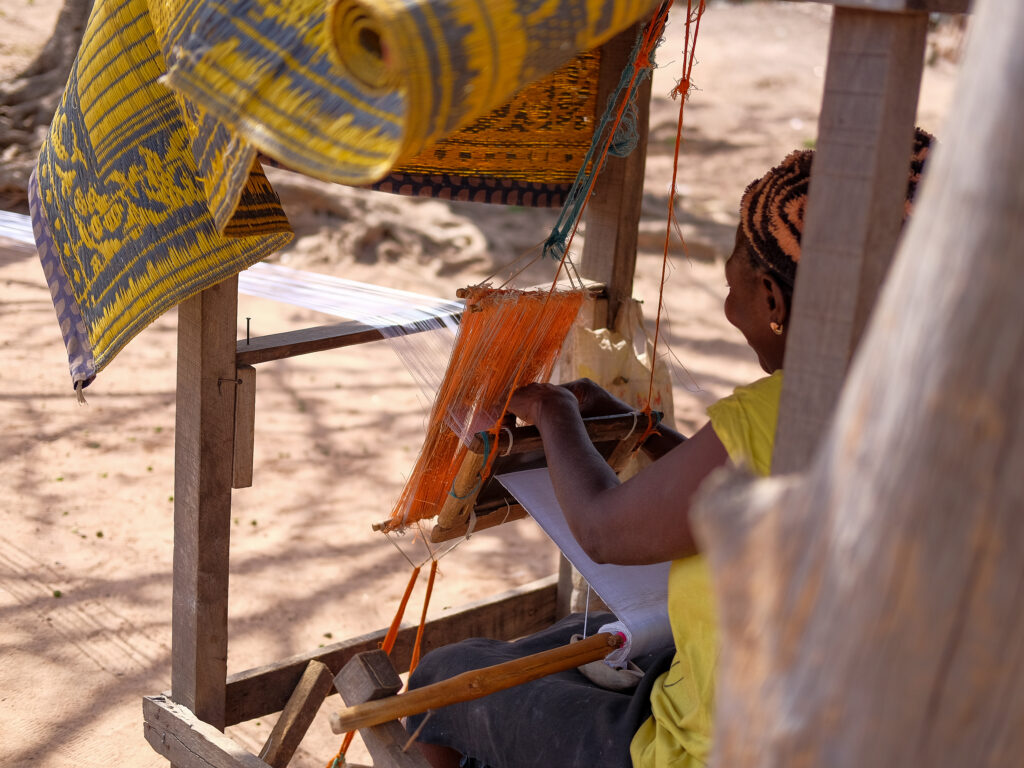
In our culture, girls are taught (as I was) to kneel when greeting elders, while boys are taught to prostrate as a sign of respect. They must not call anyone older by their first name. It was a real culture shock for me when I experienced in Hungary that young people address older individuals, even elderly people, by their first names. It felt very difficult and uncomfortable for me to do this, but I eventually got used to it.
Another rich aspect of Nigerian culture is its traditional celebrations and the various festivals associated with them. Although I am a Christian and have not participated in any festivals, I will introduce some of the more popular tribal festivals that are also enjoyed by foreigners visiting Nigeria.
Festivals Celebrated in the Yoruba Region:
The natives of Lagos State, also known as “Isale Eko,” celebrate the Eyo Festival, a cultural and traditional masquerade event that starts from the palace (Iga) of the Oba (king) or a member of the royal council.
The Ojude Oba festival is celebrated in Ijebu, Ogun State. This festival allows the natives to show respect to their ancient rulers. Different age groups perform separately. This tradition dates back to 1892, when the then-ruler allowed the introduction of foreign religions such as Islam and Christianity and permitted the building of temples for worship. During the festival, great emphasis is placed on expressing appreciation and promoting cultural values.
The Egungun Festival is part of the traditional Yoruba religion and is held in honor of notable individuals. It is celebrated by the Egba, Egbado and Oyo ethnic groups, as well as other parts of southwestern Nigeria. The festival involves grand feasts and is held between November and April, when there is no rain, with the belief that their ancestors should not suffer in the rain. It is also known as one of Nigeria’s significant cultural festivals.
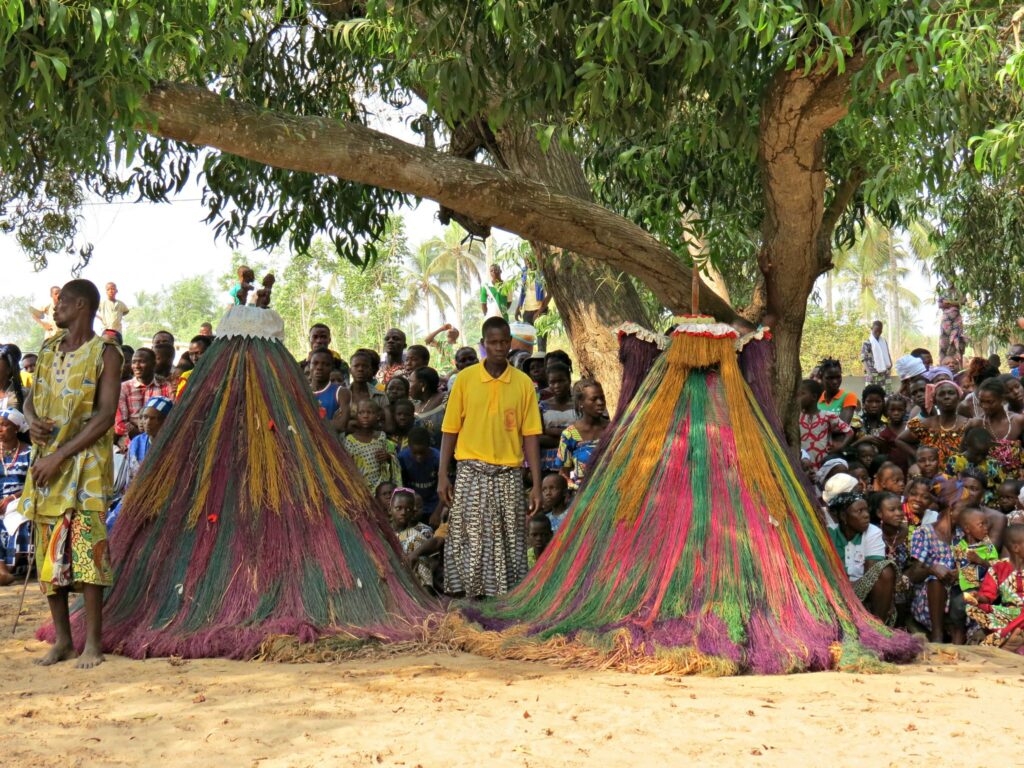
The Osun, also known as the Osun-Osogbo Festival, is held at the approach of the rainy season, usually in the last week of August. This traditional festival, originating from the Yoruba tribe, is celebrated in honor of Oshun, the river goddess.
Celebrations in Other Regions of Nigeria:
The New Yam Festival is celebrated by the Igbo tribe to mark the end of the farming season. The Calabar Carnival, known as Africa’s biggest street party, is celebrated in the streets of Calabar, Cross River State, showcasing beautiful and colorful carnival costumes and motorcycles. Other famous festivals include the Ofala Festival, the Argungu Fishing Festival, and the Durbar Festival.
Traditional Foods
No traditional celebration or festival is complete without culinary traditions. Just as with language and dress, each tribe has its unique specialties in gastronomy, while also sharing some traditional dishes.
Among the Igbo, my personal favorite is eba, which is enjoyed with egusi soup. Eba is made from fermented cassava flakes, fried in red oil, and eaten with various soups. Its texture is both soft and firm yet pliable. Egusi soup is made from ground melon seeds, with palm oil, pepper, and sometimes ugu (fluted pumpkin leaves) added. It also includes beef, okporoko (dried cod), pomo (cow skin), shaki (tripe), brokoto (cow leg), and other proteins (except eggs), shellfish, pepper, herbs and spices. Each bite bursts with delicious flavors; it’s indescribably tasty!
The Yoruba cuisine boasts numerous delectable dishes, including fufu, ofada rice, and efo riro, a vegetable soup that can be enjoyed with any type of meal.
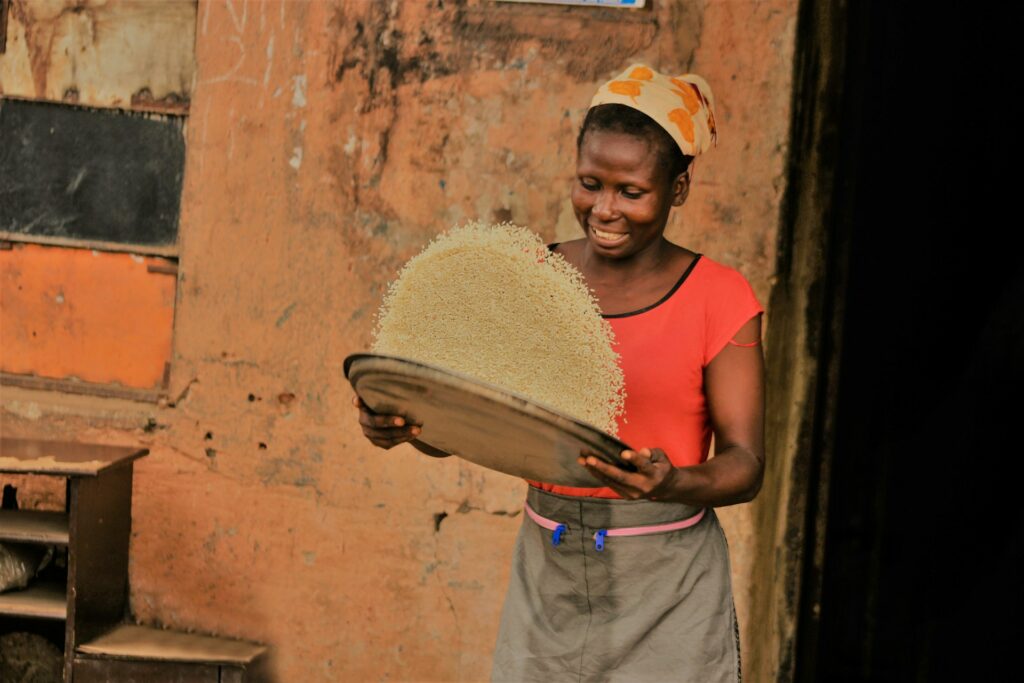
One of the Yoruba favorites is amala gbegiri ati ewedu. Amala is a staple in Nigerian cuisine, made from the ground peel of yams, cassava, or unripe plantain.
Ewedu is similar to spinach soup but is made from jute leaves. Gbegiri is cooked from ground, wet bean paste and flavored with various proteins like beef, inu-eran (offal), shaki (tripe), and pomo (cow skin). It is best enjoyed freshly prepared, hot, and soft with amala – a taste you will never forget once you try it.
Among the Hausa dishes are danwake, masa, and tuwo shinkafa, all essential staples of Nigerian cuisine. Masa and tuwo shinkafa are made from rice and are enjoyed with groundnut soup and various proteins. Suya is a popular evening snack loved by all Nigerians, made from meat and suya spices.

Nigerian jollof rice, an essential item on our list, originally comes from the cuisine of the people of Senegal in West Africa, but jollof has been embraced by every region and country. Jollof is made with fresh tomatoes, peppers, tomato paste, chicken or beef stock, bay leaves, and rice. Its aroma and flavor are truly unique. Many Nigerians proudly claim that their jollof rice is the best in the world, regardless of what neighboring countries might say.
Lagos and Abuja
I can’t talk about Nigeria without mentioning its vibrant cities, Lagos and Abuja. Lagos is a bustling city, a land of nightlife and opportunities, divided into two main areas: the Mainland, where the working class and wanderers live, and the Island, where the wealthy and famous reside.
I spent thirteen years of my life on the Mainland and can attest that it is not a place for the faint-hearted. Every day is a struggle for survival. And let’s not even talk about the Lagos traffic that starts as early as seven in the morning, the reckless danfo drivers (drivers of yellow buses), or the incidents with egbon adugbó (local wanderers).

Abuja, on the other hand, is the federal capital territory. I don’t know much about life in Abuja, but it is known for its organized layout, government buildings, and generally more relaxed pace compared to Lagos.
Music, Film, Dance
Let’s wrap up our journey through Nigeria with music, Nollywood, and dance. As a child, I listened to Fela Anikulapo’s music on TV, King Sunny Ade’s cassettes in my parents’ car, and artists like Yinka Ayefele, P-Square, D’banj, 2Baba, and Wande Coal. Afrobeats has truly evolved and now enjoys global recognition, with Burna Boy, Davido, and Wizkid leading the way. Nollywood, the Nigerian film industry, is the third-largest film-producing empire in the world. We Nigerians love to party and dance, and we have numerous traditional dances characterized by powerful shoulder movements and rhythmic hip shakes.
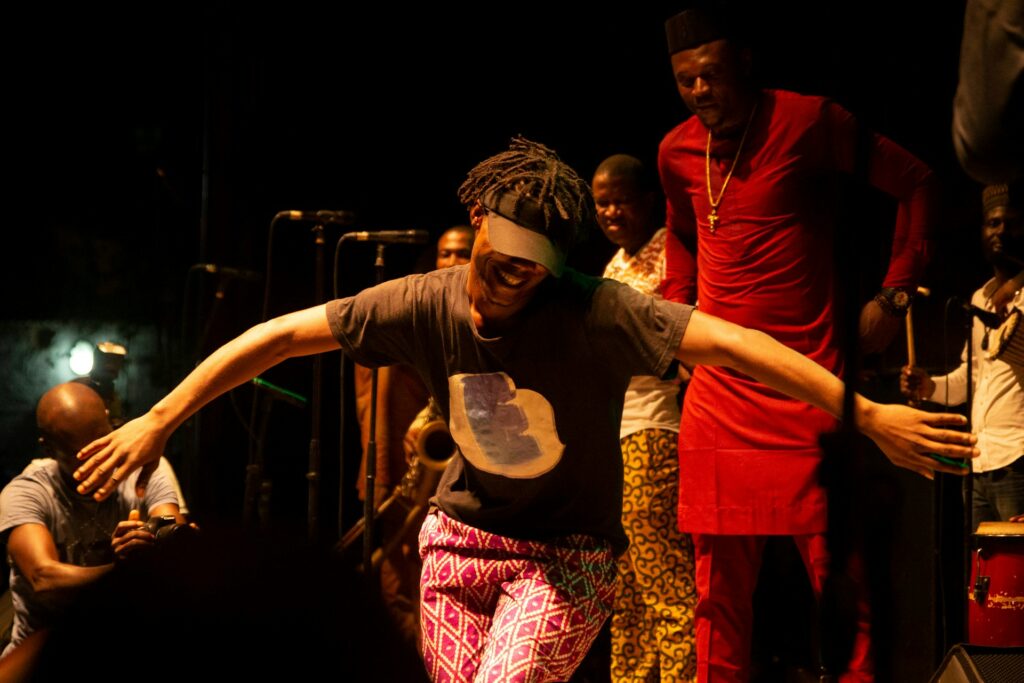
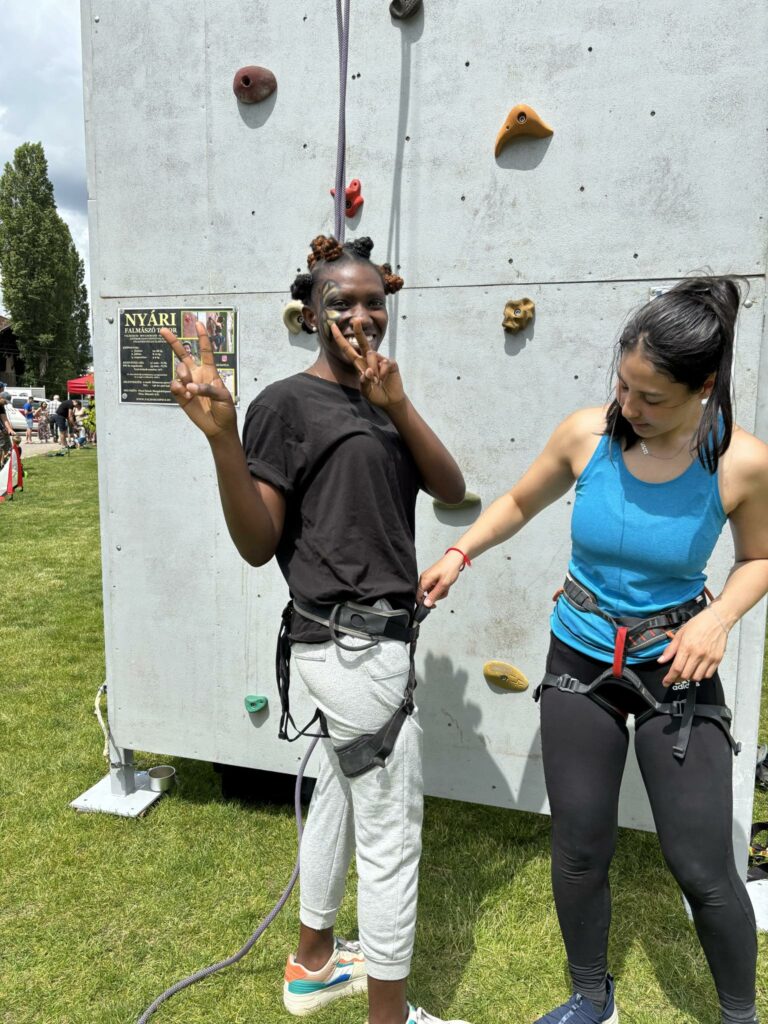
Language assistant editor: Szonja Szalontai | Cover design: Fanni Balogh

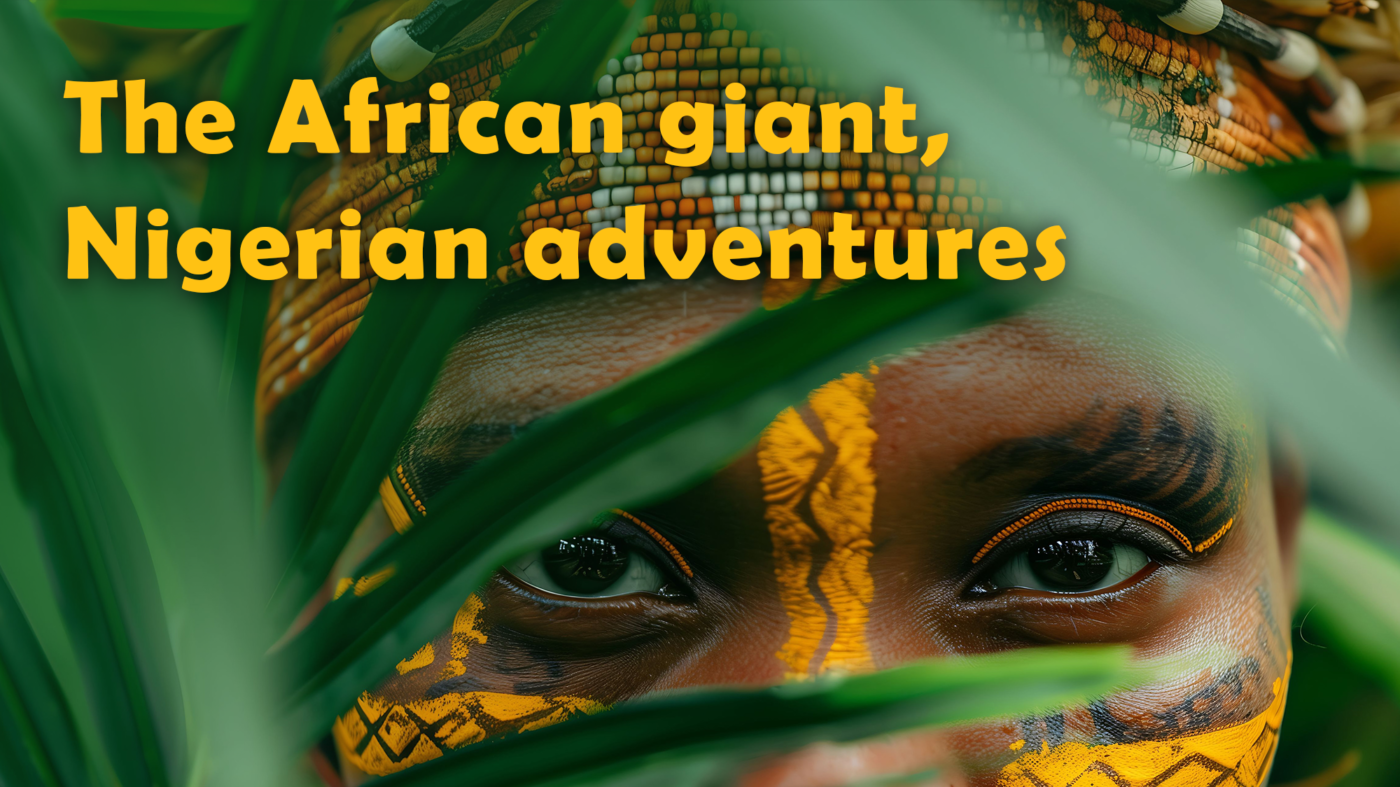
Leave a Reply